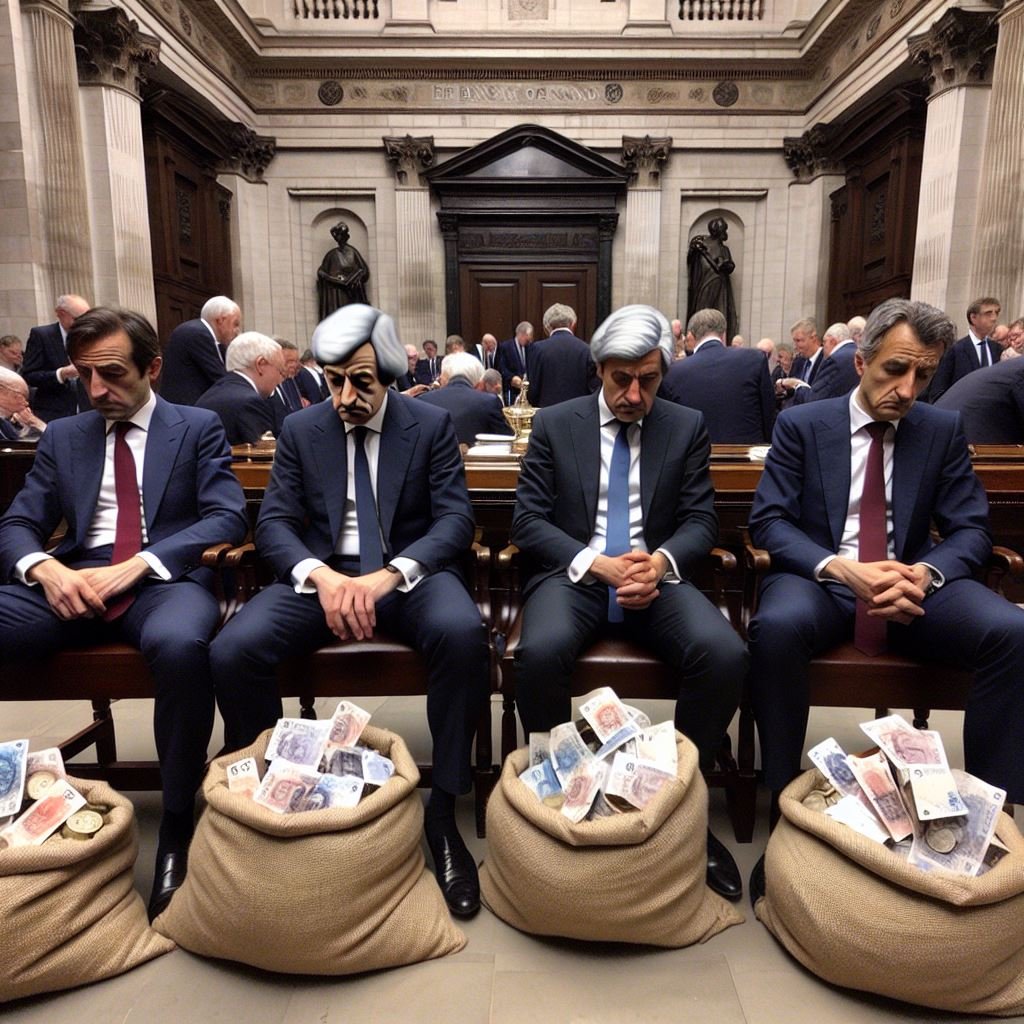Bank of England Holds Interest Rates Amid Concerns Over Inflation and Trump Tariffs
In a recent decision, the Bank of England (BoE) has opted to maintain interest rates at 4.5%, a move that comes amid mounting global uncertainty and growing trade tensions sparked by Donald Trump's tariffs. This decision was reached with an 8-1 vote by the Monetary Policy Committee (MPC), with one member advocating for a 0.25 percentage point cut.
The BoE's decision to hold interest rates reflects the complex economic landscape, characterised by inflation concerns and the unpredictable nature of global trade policies. The interest rate, which was last adjusted in February, remains at its lowest level since mid-2023. Despite expectations of further cuts throughout the year, the BoE has cautioned against assumptions of imminent reductions, emphasising the ongoing battle with inflation and rising costs for businesses.
One of the significant factors contributing to this decision is the uncertainty surrounding Donald Trump's trade tariffs. These tariffs, which have been placed and altered at short notice, have created unrest in various industries and could significantly impact the cost of selling goods to the United States. While the UK has yet to implement any retaliatory tariffs, the potential for an escalating trade war poses a risk to economic growth and consumer spending power.
The BoE utilises interest rates as a tool to control inflation, aiming for a target rate of 2%. However, recent reports indicate that inflation has been on the rise, with the Consumer Prices Index (CPI) inflation increasing to 3% in January from 2.5% in December. This upward trend in inflation further complicates the economic outlook and underscores the need for cautious monetary policy decisions.
In comparison to the eurozone, where the European Central Bank recently cut interest rates to 2.5%, and the United States, where the Federal Reserve opted to pause its own cuts, the UK's interest rate remains relatively high. This disparity highlights the unique challenges faced by the UK economy and the BoE's efforts to navigate these complexities.
Impact of Trump's Tariffs
Trump's tariffs have had a significant impact on global trade and economic stability. These tariffs, aimed at protecting US industries, have led to increased costs for businesses exporting goods to the United States. The uncertainty surrounding these tariffs, with frequent changes and withdrawals, has created a volatile environment for international trade.
For UK businesses, the tariffs have added an extra layer of complexity. Companies that rely on exporting goods to the US have faced higher costs, which can affect their profitability and competitiveness. The potential for an escalating trade war further exacerbates these challenges, as retaliatory tariffs could lead to reduced demand for UK exports.
Moreover, the tariffs have contributed to inflationary pressures. Higher costs for imported goods can lead to increased prices for consumers, impacting their spending power. This, in turn, affects overall economic growth and stability.
The BoE's decision to hold interest rates reflects the need to manage these inflationary pressures while navigating the uncertainties of global trade policies. By maintaining stable interest rates, the BoE aims to provide a level of predictability for businesses and consumers, helping to mitigate the impact of Trump's tariffs on the UK economy.
As the global economic landscape continues to evolve, the BoE's decision to hold interest rates serves as a reminder of the delicate balance required in monetary policy. The interplay between inflation, trade tensions, and economic growth will undoubtedly shape future decisions and impact the broader economic environment.



